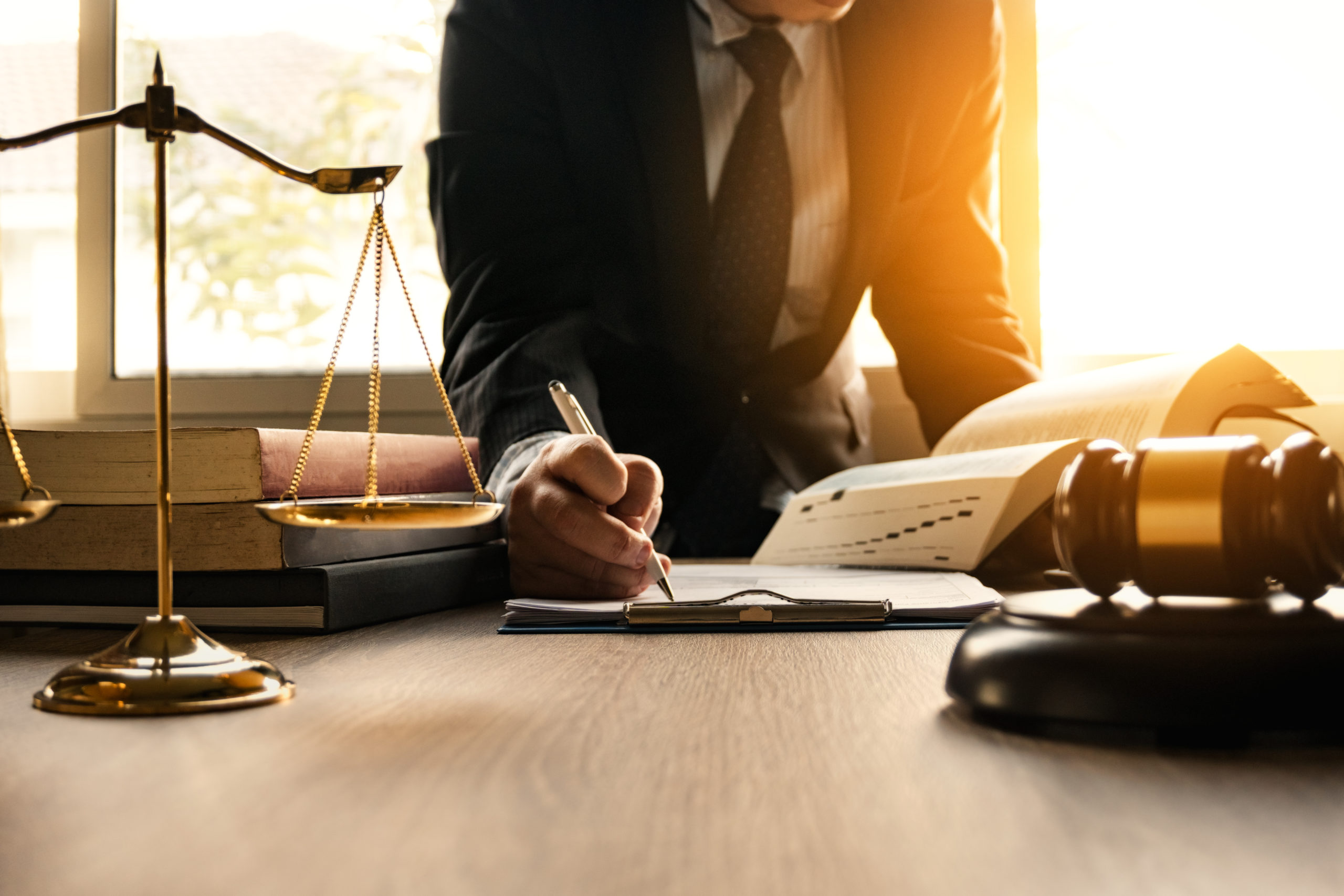Law Day 2019: Free Speech, Free Press, Free Society
Law Day 2019: Free Speech, Free Press, Free Society

Happy Law Day! This year’s theme, “Free Speech, Free Press, Free Society” aims to address the clash between First Amendment rights and the influence of the Internet. This theme is especially significant today, as we live in a society where social media and technology is bigger than ever. From combating fake news to determining the modern meaning of a public forum, there is a lot that needs to be addressed. Let’s dive in.
Fake News
One of the hottest topics of the past few years is “fake news”. This concept has caused many Americans to lose trust in today’s journalism and begin to question where they receive their news. Last year, a survey conducted by Pew Research Center found that about two-thirds of Americans occasionally received their news from social media, but most of these consumers also expected news on social media to be inaccurate. The shift of news consumption from print media to social media has most likely grown simply because of the increased use of social media. This year, 79% of the United States population has a social media profile, with 2.34 billion social media users worldwide, according to The Statistics Portal. With such a massive population existing on social media and growing everyday, it is not a surprise that inaccuracy exists. Within every aspect of society, there are those who seek to do wrong, and because of this, fake news flourished. After the 2016 presidential election, Facebook was surrounded by scandal and scrutiny over claims that fake news stories posted on the platform caused Trump’s victory. Even though this theory was never proven to be true, it allowed for fake news to become a prominent topic of concern. Even worse, many people simply do not fact check information they review on social media! Facebook recently announced that it is taking new steps to combat “problematic content” from going viral on the platform, according to an article by CNET News. They say that with great power comes great responsibility, and these days, Facebook holds a lot of power within society. Mark Zuckerberg has become more verbal about the problem Facebook faces censoring inappropriate content, given the logistics and variables of monitoring such a massive population. Zuckerberg has even asked the government to implement stronger Internet and privacy laws to help with these issues, and you can read about it here. This need for assistance with content censorship brings us to our next topic of concern, how the First Amendment plays into social media censorship.Social Media and Censorship
Although social media is widely used by a majority of the U.S. population, including almost all government officials, it is not in any way owned or provided by the government. These publicly-traded platforms (Facebook, Instagram, Twitter, Snapchat etc.) decide what is allowed to be posted and what is not. This means that protections of the First Amendment aren’t guaranteed, particularly when it comes to censoring posts on social media. Each social platform has its own community guidelines that users must comply with, and some are stricter than others, depending on the type of speech. For example, Snapchat’s policy on hate speech censors more content than that of Facebook, who’s policy allows for the sharing of some content containing hate speech if it is for raising awareness, humor, or social commentary. You can learn more about the various levels of speech censorship on social media here. Even though these companies are not required to be compliant with the protections of the First Amendment, because they are not government entities, they still aim to protect their users from harmful content. But, as hate and extremist speech continues to grow on these platforms, it has become harder to control. This is why Facebook, who also owns instagram, has the idea to create an independent body that will decide what content should or should not be removed from their platforms. Zuckerberg even compared this body to a supreme court in an April interview with Vox, as reported by the ABA Journal. Looks like Facebook wants to create its own justice system outside of government interference for it’s growing community. This brings us to our next topic, the government and social media.Government Censorship
Is it fair for a government official to block users whose views don’t align with their own? Does this violate the First Amendment? Some would say that it does, noting an individual’s right to criticize the government. However, as we’ve mentioned before, it’s not up to the First Amendment to protect our rights on social media. Recent court cases have addressed this issue as well. One case in particular, Knight First Amendment Institute for Columbia University v. Trump, provided two important views on the topic. Judge Naomi Reice Buchwald classified social media as a public forum, a place where ideas and opinions should be expressed freely like they are in the streets or public parks. On the other side, it was argued that if a government official, in this case President Trump, were to block someone on Twitter, they would have every right to do so unless the account was under the control of the government, not for personal use. Now, in my opinion, the President using a public Twitter account for anyone and everyone to see should be in the control of the government, but I don’t make the rules. Even so, if the President does want to be active on Twitter, but doesn’t want to receive backlash for actions, why not just make a private account? Furthermore, even if the President does block a certain user, what will stop them from creating another account to view his content? Nothing. Plus, it’s not like he would notice. Now, when you consider this instance, there’s a valid argument that social media could be considered a public forum for free speech purposes, but it is not — and this privilege should not be haphazardly extended to all social media.Free Press
After analyzing some of the dilemmas social media and the Internet have in relation to free speech, let’s take a glimpse into how the press can play into this topic. In 2013, The Washington Post, one of the nations most prominent sources for political news, was purchased for $250 million by Jeff Bezos. Bezos is the founder and CEO of Amazon, the largest e-commerce marketplace and cloud computing platform in the world. Do we find this combination odd? When Bezos purchased the publication, he had no prior experience in the newspaper industry. Now, he has turned the company around, significantly improving its declining readership and implementing technology from the digital world, according to an article by Business Insider. The Washington Post transformed into a media and technology company under Bezos, revamping its websites and apps and using a more data-driven approach to determine readership and distribute content. To no surprise, The Washington Post also started offering discounts for Amazon Prime members. Even with all the improvement Bezos was able to bring to the publication, it is still questionable whether his involvement in the newspaper is an ethical issue. He is in fact, the owner of Amazon, which, in recent years, has become very successful, making Bezos the richest person in the world. It’s been reported that Bezos isn’t involved in The Post’s editorial direction, but how can we be sure of this? Would The Washington Post ever publish an article painting Amazon in a negative light? Or would they censor this type of content from being published. Another tech giant, Google, has also been accused of censoring search results for important news articles. In some instances, it’s alleged that the search results are not even defamatory, hate speech, violent or otherwise objectionable under Google’s Terms. President Trump tweeted, “Google & others are suppressing voices of Conservatives and hiding information and news that is good. They are controlling what we can & cannot see. This is a very serious situation-will be addressed!” Free Press and free speech are constantly being questioned in today’s technologically-dominated landscape and everyday changes are being made in hopes of addressing these issues. As technology continues to grow and change, it’s difficult to determine what will work and what won’t. Keep in mind though, defamation is not protected free speech, so before you post purported facts on social media, be sure to fact-check yourself. Now that we have discussed some of these issues, ask yourself this question: What could 2019 bring for Free Speech and Free Press? If you need guidance on Internet defamation, cyberbullying, or free speech issues on social media, contact the attorneys at RM Warner Law or visit our location to learn more.Similar like this
You also might be interested in
Why Hiring an Internet Defamation Lawyer Could Be the Right Move
These days, many of us live part of our lives [...]
Can You Sue an Anonymous Author for Libel? What You Need to Know
The internet makes it easy for anyone to post content [...]
What Does an Internet Law Firm Do? How We Protect Your Online Reputation and Business
How RM Warner Protects Your Online Reputation and Business Navigating [...]
Instagram’s Terms of Service: What You’re Really Agreeing To
Are you guilty of clicking "I Agree" to the terms [...]





